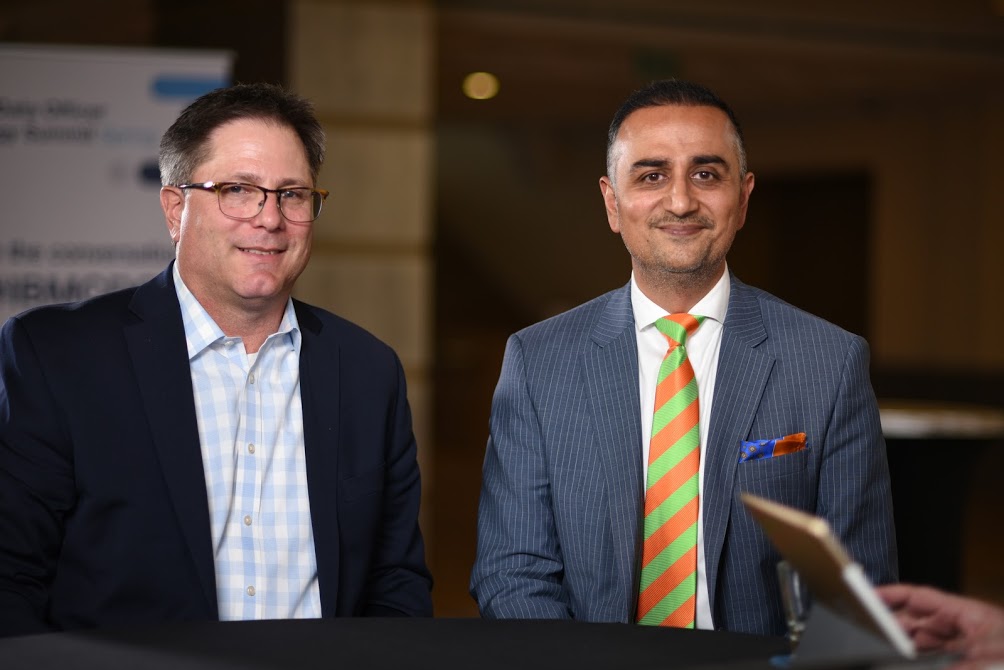 BIG DATA
BIG DATA
 BIG DATA
BIG DATA
 BIG DATA
BIG DATA
The $5 trillion health ecosystem in the U.S. is in a position for emerging technologies to disrupt the industry, according to recent reports. In today’s connected world, many healthcare institutions are turning to data to capitalize on patient care, increase productivity and lower costs, with big data at the center of advancing health for many individuals. However, privacy and security remain a top concern for providers and patients as the conveniences tech offer also open the door for data theft.
Kaiser Permanente looks to be on the leading edge of an industry transformation with a new system, HealthConnect, that securely shares data across all its business. According to McKinsey & Company report, this integrated system resulted in better outcomes for cardiovascular patients and saved an estimated $1 billion in a reduction in office visits and lab tests.
“We are custodians of a lot of datasets that relate to patients’ health information and their personal information. And that’s a great responsibility. I think from a governance standpoint, that’s one of the key drivers that defines our focus areas,” said Fawad Butt (pictured, right), chief data governance officer at Kaiser Permanente.
Butt and Bruce Tyler (pictured, left), partner, global big data analytics leader at IBM Corp., spoke to Jeff Frick (@JeffFrick) and Peter Burris (@plburris), co-hosts of theCUBE, SiliconANGLE’s mobile live-streaming studio, during the IBM Chief Data Officer Strategy Summit conference in San Francisco. (Disclosure below.)
The pair discussed the significance of big data along with the necessity for maximum security and privacy in the healthcare industry. This week, Fawad Butt and Bruce Tyler are theCUBE’s Guests of the Week.
A 60-year-old company that has a presence in many states, Kaiser Permanente is using data to enhance each of its verticals within its system. The vertically integrated organization has access to a tremendous amount of data. Businesses within the system include managing hospitals, medical practices, labs, and pharmacies, along with selling insurance and conducting research. Butt noted that the institution is an end-to-end healthcare system that generates a tremendous amount of datasets.
Attacking data governance is unique to each organization because it should be trying to solve relevant use cases. At Kaiser Permanente, Butt explained the mission and drivers to delivering the best outcomes for the business using data: achieving the highest coverage and care at the lowest cost and leveraging and governing data in a way that supports the company’s goals.
Increased regulatory scrutiny and pressure are some of the issues Butt is dealing with in a changing environment where individuals instead of employers are now purchasing health insurance. He explained that going from a B2B to a B2C sales methodology creates the need to provide an excellent customer experience as well.
Being custodians of vast amounts of datasets that include patient health and personnel is an immense responsibility. Butt said from a governance standpoint that it is one of the key drivers that define the organization’s focus areas.
The bigger challenge lies in the nuts and bolts of an organization like Kaiser Permanente, which is vertically integrated, Butts explained. In an effort to manage the data properly, there is a need to take stock of the entire dataset before moving forward. Additionally, protecting and securing the data is critical. Lastly, he maintained that figuring out the right purposes of using the data is another piece of the management process.
Data governance is essential to the system, which facilitates the determination of what data gets shared, for what purpose and how. Butt said that this adds to the value of data on both the offensive and defensive side.
“Data production is great, but data consumption is where a lot of the value gets captured,” said Butt.
IBM is partnering with Kaiser Permanente to build systems of engagement and enhance technology-powered healthcare. Tyler discussed how a few years can make a difference. He spoke about how over the last three to five years there has been a shift in using Big Data. Initially, companies would start big and try to solve the IT issues surrounding data.
IBM worked with Kaiser to build foundational management processes that preserve a level of integrity and trusted data source across the company. However, extracting the data to get value and insights or improve business optimization is changing to a use case-based project.
“We’ve done a healthy business within IBM helping customers go through the transformation processes. What we see now is [customers are] looking at things from a use case-driven approach,” said Tyler.
Companies are starting small and building a proof of value point around a particular subset of data, he explained. Showing the proof of the smaller projects enables businesses to scale using the architecture to maintain, sustain and govern the data.
As the industry employs more connective devices and collects more information, the use of cognitive will intensify, and the end-game is for patients to receive the best care at the lowest costs, Butt and Tyler concluded.
Watch the complete video interview below, and be sure to check out more of SiliconANGLE’s and theCUBE’s coverage of the IBM Chief Data Officer Strategy Summit. (*Disclosure: IBM and other companies sponsor some IBM CDO Strategy Summit segments on SiliconANGLE Media’s theCUBE. Neither IBM nor other sponsors have editorial control over content on theCUBE or SiliconANGLE.)
THANK YOU